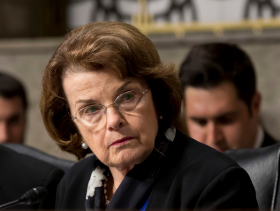Fight Club: Who is in charge here?
 Last December, the Joint Special Operations Command (JSOC) conducted a drone strike in Yemen that appears to have gone horribly wrong by mistakenly targeting a wedding convoy and killing scores of civilians. By early January of this year, U.S. officials had launched an internal investigation of the strike and in April, The New York Times reported that the military drone program in Yemen had been grounded. Meanwhile, a parallel CIA drone program in Yemen was not affected and continues to conduct operations there.
Last December, the Joint Special Operations Command (JSOC) conducted a drone strike in Yemen that appears to have gone horribly wrong by mistakenly targeting a wedding convoy and killing scores of civilians. By early January of this year, U.S. officials had launched an internal investigation of the strike and in April, The New York Times reported that the military drone program in Yemen had been grounded. Meanwhile, a parallel CIA drone program in Yemen was not affected and continues to conduct operations there.
This latest development only further complicates the debate on whether the CIA should gradually transition control of the armed drone program to the military. The issue of “ownership” of the drone program has sparked not only a fierce interagency dispute (which ultimately is about preserving generous funding levels and expanding operational authorities) but it has also revealed significant jurisdictional fault lines between the respective authorizing committees in Congress.
As we previously noted on this blog, Sen. John McCain (R-AZ), who sits on the Senate Armed Services Committee, offered a sharply worded rebuke to Members on the Appropriations Committees who had secretly inserted a provision in the 2014 omnibus spending bill that preserved the CIA’s control over major drone operations. While this move came from the appropriators, it soon became clear that Sen. Dianne Feinstein (D-CA), who is the chairwoman of the Senate Select Committee on Intelligence, wholeheartedly endorsed this decision as well.
Late last month Sen. McCain renewed his efforts against the secret “drone provision” by reiterating his strong desire to use the markup session for the annual National Defense Authorization Act (NDAA) to insert a special provision which would transfer control of armed drone operations to the Defense Department. The Senate Armed Services Committee has now completed its markup of the 2015 NDAA and has reported it to the Senate with a 25-1 vote. The bill includes 11 amendments sponsored by Sen. McCain but none of them address the issue of drone operations. Obviously, the Senate bill will have to be reconciled later with the House version of the NDAA. And as the appropriators demonstrated not so subtly with last year’s omnibus bill, things can be quite unpredictable and significant policy changes can be made at the last minute.
There is no question that the drone oversight issue will remain a major point of contention between the Intelligence and Armed Services Committees. One important aspect of this debate is how the actual oversight is done and which Committee can do a better job. Sen. Feinstein is quick to point out that her Committee is very closely involved in the oversight of CIA drone operations and pursuant to current statutes, Members receive regular notifications on every drone strike. But of course the covert nature of the program makes it almost impossible to know exactly what is going on behind closed doors.
Precisely because of concerns about the lack of accountability and transparency, Sen. McCain and other Members of the Armed Services Committee, have pushed for shifting all armed drone operations to the military. They stress that the Armed Services Committee can conduct oversight in public and therefore provide a better accounting of how drone operations are executed.
While this is certainly a valid argument, I wonder if it actually bears any significant weight. What we currently know from the public record is that the majority of military drone strikes beyond the Afghan battlefield are conducted by JSOC. Will the Armed Services Committee conduct a public hearing to discuss the activities of JSOC? I highly doubt it. In addition, even if some military drone activity is disclosed and debated publicly, the majority of sensitive and high risk operations in places such as Yemen, Somalia and some other denied areas, will still remain highly classified and therefore beyond the reach of public scrutiny.
This debate is certainly far from settled and action on the final FY 2015 defense authorization bill may contain important clues as to where future oversight of the drone program will reside.







